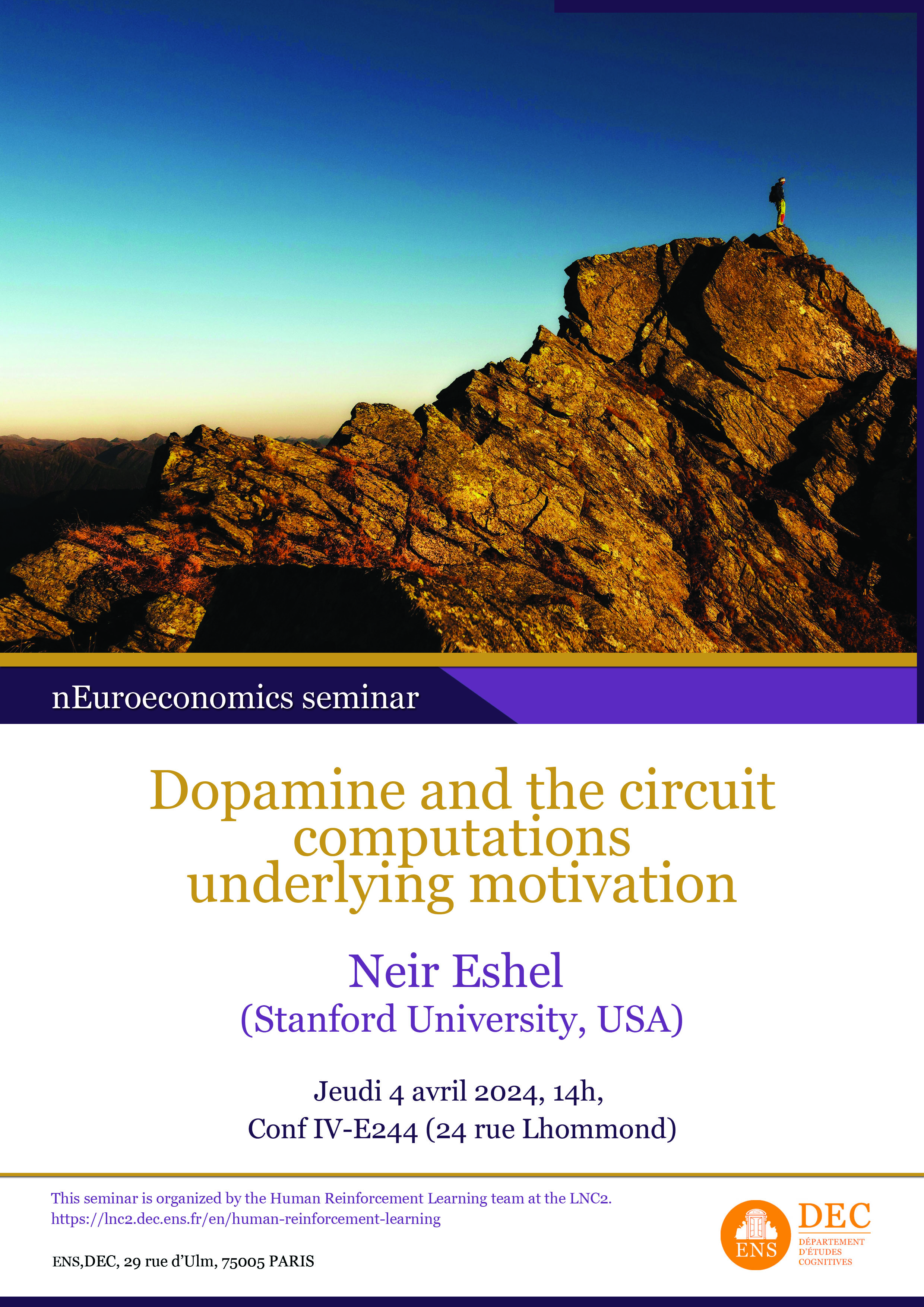
A computational and neural model for mood dynamics
The happiness of individuals is an important metric for societies, but we know relatively little about how daily life events are aggregated into subjective feelings. We show that happiness depends on the history of expectations and prediction errors resulting from those expectations, a result we have now replicated in thousands of individuals using smartphone-based data collection (https://happinessquest.app). Using fMRI, we show how happiness relates to neural activity and to the neuromodulator dopamine.
Trial matching: capturing variability with data-constrained spiking neural networks
Dopamine and the circuit computations underlying motivation
 Motivation–the energizing of behavior in pursuit of a goal–is central to daily life. Disruptions in motivation underpin multiple neuropsychiatric disorders, from abnormally low motivation in anhedonia to abnormally high motivation in addiction. Although dopamine (DA) release has long been implicated in motivated behavior, the mechanisms of that link remain unclear.
Motivation–the energizing of behavior in pursuit of a goal–is central to daily life. Disruptions in motivation underpin multiple neuropsychiatric disorders, from abnormally low motivation in anhedonia to abnormally high motivation in addiction. Although dopamine (DA) release has long been implicated in motivated behavior, the mechanisms of that link remain unclear.
Neural representations of learning and behavior
A fundamental question in neuroscience is to understand how coordinated neural activity and structured circuitry in the brain are responsible for generating behavior. Decades of experimental and theoretical work have demonstrated that correlated neural activity has a strong impact on population coding by reshaping neural representations of external stimuli. More recently, large-scale recordings have provided insight as to the dynamic mechanisms by which neural populations perform computations, but the link to their circuitry remains unclear.
Ethnic-racial discrimination influences on neural representation of threat and safety learning in children: A community-engaged approach
Ethnic-racial discrimination is a salient reality and powerful threat for minoritized youth which poses a serious community health concern as it is associated with deleterious mental health outcomes such as anxiety. During middle childhood, when important regulatory brain networks are undergoing substantial change, exposure to discrimination may affect brain development and exacerbate behaviors that maintain and escalate anxiety symptoms.
Executive function scaffolds reinforcement learning
Reinforcement learning frameworks have contributed tremendously to our better understanding of learning processes in brain and behavior. However, this remarkable success obscures the reality of multiple underlying processes, and in particular hides how executive functions set the frame over which reinforcement learning computations operate. In this talk, I will show that executive functions define the learning substrates (such as choices, stimuli and reinforcers) for other learning mechanisms, setting the stage for what we learn about.
